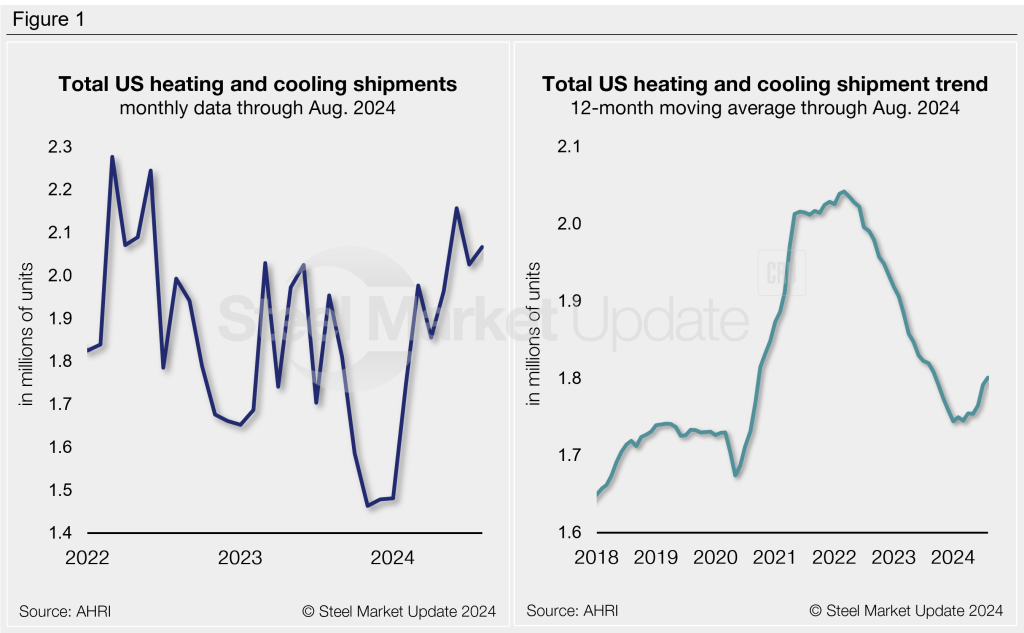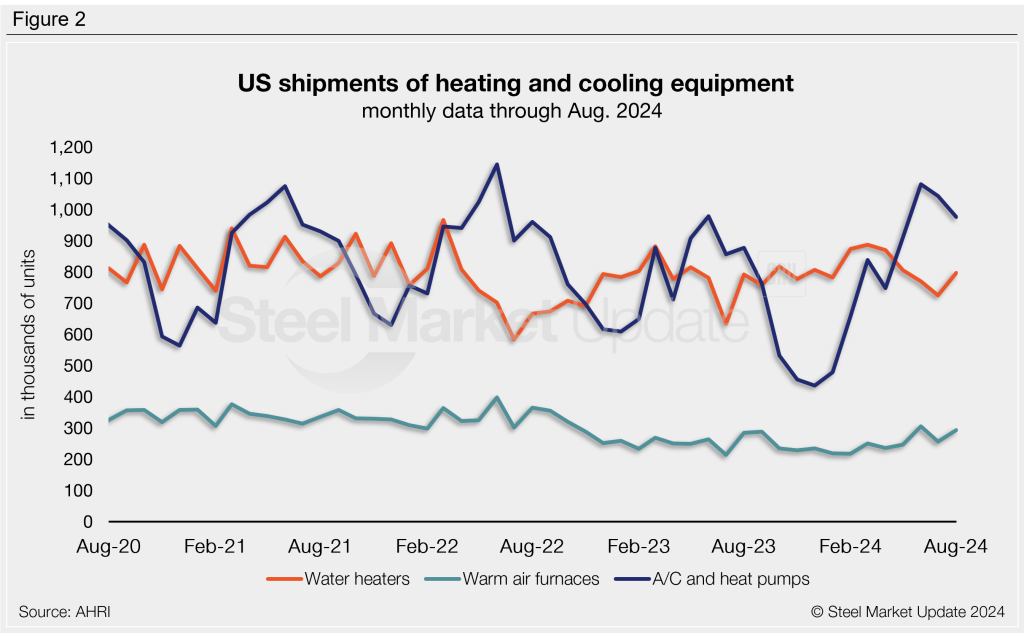Analysis
October 15, 2024
HVAC equipment shipments strong through August
Written by Brett Linton
Heating and cooling equipment shipments remained near multi-year highs in August, according to the latest data released from the Air-Conditioning, Heating, and Refrigeration Institute (AHRI).
Total August shipments increased 2% month on month (m/m) to 2.07 million units (Figure 1, left). Shipments are 6% greater than the same month last year. August now represents the second-highest monthly shipment rate recorded in the last two years, just below the 2.16 million units rate recorded in June.
On an annualized 12-month moving average (12MMA) basis, shipments have trended higher since June (Figure 1, right). This follows a significant decline from mid-2022 through the start of this year, following the post-Covid surge. The 12MMA through August is up to an 11-month high of 1.80 million units, 1% less than the same period one year prior.

August shipments of residential and commercial storage water heaters jumped 10% m/m from July’s one-year low, now up to 797,000 units. (Recall that in March we saw a two-year high of 887,000 units). August shipments are 1% higher than levels seen one year ago. Total monthly water heater shipments have averaged 806,000 units over the past year.
Warm air furnace shipments have bounced around since reaching a 20-month high in June. Following a 16% drop in July, shipments recovered 14% m/m in August to a combined 293,000 units. This is 3% higher than levels seen one year prior. Furnace shipments have averaged 251,000 units per month across the prior 12 months.
Shipments of central air conditioners and air-source heat pumps fell 6% m/m in August to a total of 976,000 units. This follows a two-year high of 1.08 million units recorded in June. Note that air conditioner/heat pump shipments are very seasonal, with slowdowns experienced throughout the winter months as evident in Figure 2. Total air conditioner and heat pump shipments are 11% greater than the same month one year prior. Shipments have averaged 744,000 units per month across the last year.

The full press release of this data is available here on the AHRI website.
An interactive history of heating and cooling equipment shipment data is available here on our website. If you need assistance logging in to or navigating the website, please contact us at info@steelmarketupdate.com.







